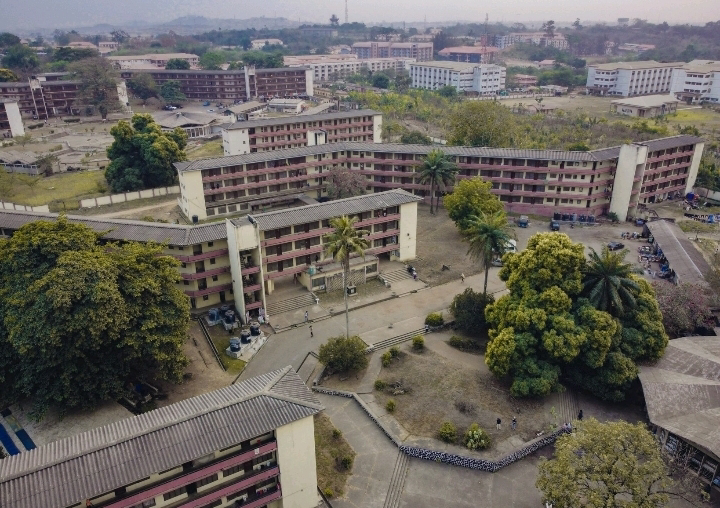Within the University of Ibadan community, hall culture is arguably the heartbeat of student life. It goes beyond any residence-based camaraderie. From the brotherhoods and sisterhoods that cross every hall to the fierce rivalries and alliances, it molds identities, informs social interactions, and heavily influences campus politics. For many, hall affiliation is the primary and most significant lens through which decisions, alliances, and leadership choices are made. But as we reflect on this culture, a pressing question arises: is hall culture a disruptive force that holds us back and undermines our progress, a progressive crucible nurturing leadership, or a complex mix that lies somewhere in between?
Brotherhood, Sisterhood, and Beyond
Before we critique, it is important and fair to recognize the strengths of this culture. Unarguably, hall culture offers undeniable benefits. For many students, it provides a vital sense of belonging and community and as some would say, “a home away from home” kind of feeling. Importantly, hall culture is not exclusive to any one residence or gender. It exists across all halls, crossing the boundaries of brotherhood and sisterhood alike. Moreover, its influence extends beyond residential halls into departments and faculties, where similar patterns of allegiance shape social and political interactions. While these wider effects deserve their own discussion, it is clear that its reach is both deep and broad within the University of Ibadan student community.
Well, these networks also serve as early training grounds where leadership is learned and tested. Undoubtedly, students gain invaluable experience. As noted, hall politics is where many learn the basics of leadership i.e., teamwork, negotiation, and even public speaking skills that shape various future roles. Moreover, the spirited rivalries between halls promote interest, excellence, and active participation in politics, social and sporting activities, and even cultural activities. Also, lifetime bonds formed through hall affiliations often translate into lifelong mentorship and professional networks, underscoring its lasting impact beyond campus walls.
Toxic Hall Culture as an Unfortunate Reflection of the Broader Nigerian Society
Yet, in many ways and at its core, hall culture is a microcosm of the broader Nigerian society itself i.e., a representation of movements, loyalties, and followership often divorced from critical assessment. Loyalty to one’s hall mirrors the loyalty Nigerians show to their sub-communities, ethnic groups, geographic regions, or even political parties. While this can promote solidarity, uncritical followership can lead to disastrous outcomes. And for a university community meant to nurture critical thinking and leadership, this blind loyalty is a dangerous legacy. The result? A society grappling with loyalty that sometimes blinds us to competence and accountability.
The clearest and most obvious expression of this culture is visible during campus elections, right from the Students’ Union level to the various departments and subcommittees. Students overwhelmingly vote not based on a candidate’s personality, track record, vision, plans, or leadership qualities but on which hall they belong to. This unfortunate reality transforms elections into a numbers game dominated by hall blocs rather than a fair, merit- based contest of ideas, vision, and feasibility. The consequence is predictable: mediocrity in leadership, diminished accountability, and a governance system beholden more to parochial interests than to the student body’s overall welfare i.e., leaders who owe their positions to hall loyalty rather than merit or accountability. Such practices undermine the quality of governance that ought to be witnessed in an acclaimed intellectual student community. It undercuts the values of merit, transparency, and vision that student governance ought to uphold.
The Urgent Need for Reform: Balancing Tradition and Progress
The challenge now lies in striking a balance i.e., preserving the positive aspects of this culture while reforming its detrimental and toxic tendencies, especially in campus politics. Reforming campus elections to prioritize merit, clear and feasible plans, and leadership vision over hall loyalties has never been more crucial. Encouraging students to engage critically with candidates and demand transparency can significantly transform the political landscape.
Hall culture, with all its complexities, will certainly remain a defining feature of student life on campus for years to come. However, as the university continues to mold future Nigerian leaders, it must champion a culture of meritocracy, vision, and critical engagement. Students must challenge themselves to rise above blind allegiance and demand leaders who bring genuine value and integrity. Only then can this culture evolve from a divisive force into a truly progressive institution. Only through this transformation can hall culture evolve from a reflection of the unfortunate, disappointing societal challenges into a beacon of hope and progress for Nigeria’s future.









